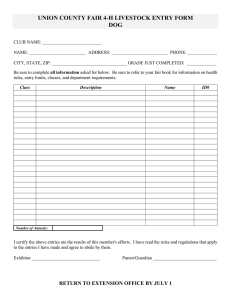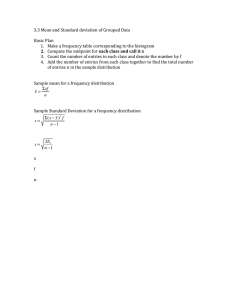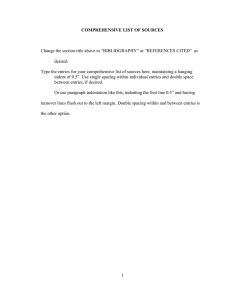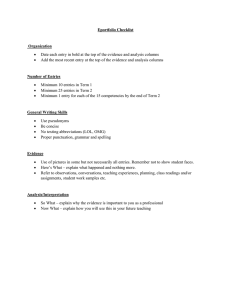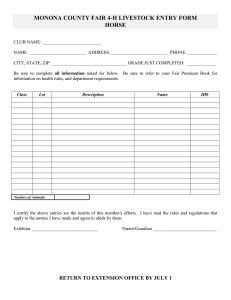FSA 2014 Conference Presentation: Experiential Learning in a Marriage Course
advertisement
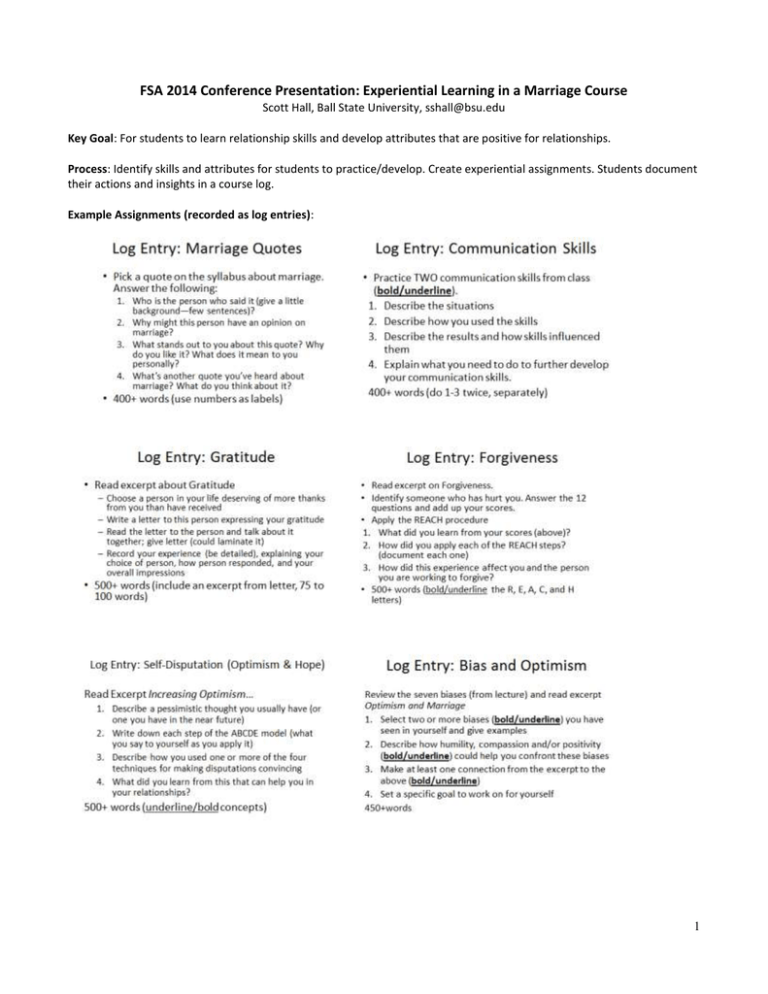
FSA 2014 Conference Presentation: Experiential Learning in a Marriage Course Scott Hall, Ball State University, sshall@bsu.edu Key Goal: For students to learn relationship skills and develop attributes that are positive for relationships. Process: Identify skills and attributes for students to practice/develop. Create experiential assignments. Students document their actions and insights in a course log. Example Assignments (recorded as log entries): 1 NOTE: Log entries on Gratitude, Forgiveness, and Self-Disputation are based in excerpts from Authentic Happiness, by Martin Seligman. The Log entry on Bias and Optimism is based on material presented by Wally Goddard and James Marshall, U. of Alabama Extension. Course Log description: Throughout the entire course, you will be required to regularly contribute to and complete a course log. Frequently you will be asked during class to reflect on a certain question or issue and to record your own thoughts. I recommend you purchase a notebook of some sort to conveniently keep track of your reflections. However, you should then type (and typically add to, when instructed) the entry after class. You will also have many assignments outside of class for which you will use your log for documentation. The log will be divided into four parts and you will turn in one part at a time (each part has several log entries). Each part has a corresponding set of brief, supplemental readings that you should download from Blackboard and bring to class with you. You will turn in each part by submitting them through Blackboard (see schedule below). It will be very difficult if not impossible to complete a quality log if you do not regularly attend class. I will not repeat the information to you outside of class if you do not attend (in cases of emergencies and university approved absences, please contact me for exceptions— ideally in advance). It is thus very important that you take quality notes during class and ask questions when information is not clear or you would like to know more about a topic. You will not always know which notes you take will be needed for a future log entry or other assignment. There will often be an emphasis on integrating course concepts into your log entries (and other assignments). Examples of course concepts include theory (e.g., “According to the Complementary Needs theory, …”), terminology (e.g., propinquity, companionate marriage), the findings of a study or statistical report (e.g., “Gottman found that couples who…”; “72% of husbands in the sex survey agreed that…”), a philosophical claim (e.g., “Pittman claims that it is a myth that people cheat for…”), and clinical observations (e.g., “Markman noticed that troubled couples fight more over…”). Notice that specific names or technical terms are used—you should do the same. When you refer to a course concept in your log, you should bold and underline it. A concept is narrower than a topic—“family of origin” or “work and family” are topics (see schedule below) while “differentiation” and “parallel couples” (attend class to learn about them) are concepts. Grading: I expect high-quality log entries. Everyone begins with 200 points (full credit) and can lose points once I grade your logs. You will lose points: for each log entry you fail to complete. Some entries require more effort than others, so you can lose more points for not completing those entries (they will be identified in class). However, it is better to turn in a log that is missing entries than to turn in no log at all. if you are instructed to include course concepts and do not. If you do not identify the concepts by bolding and underlining them, they will not be counted. You will also lose points if you include concepts but do not use them correctly (when it is clear that you do not have a basic understanding of the concepts). for not following other directions specific to any entries, including being too short. for not formatting the log entries as instructed in class (e.g., numbering/lettering each section or answered question of each log entry, according to the numbering or lettering given in class). if your entry is poorly written (you should use proper grammar, punctuation, and organization). 2
